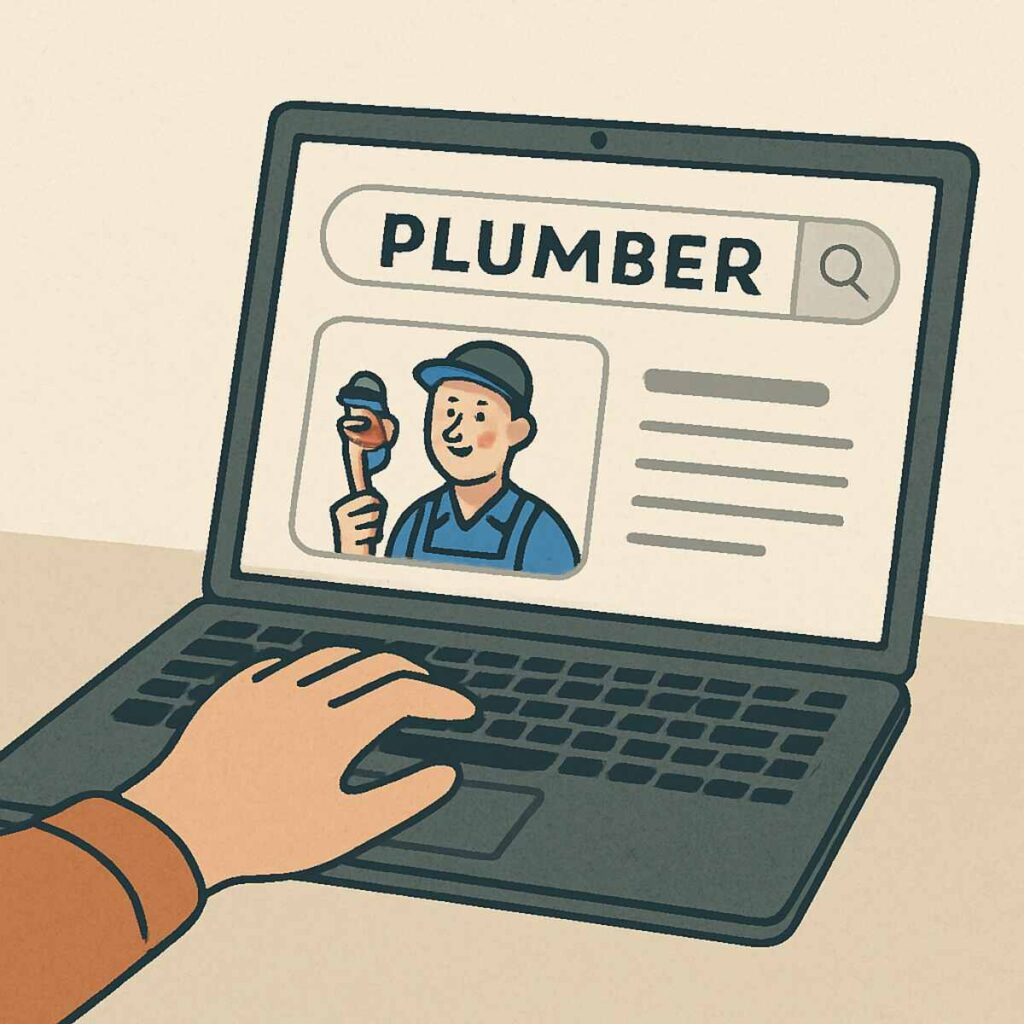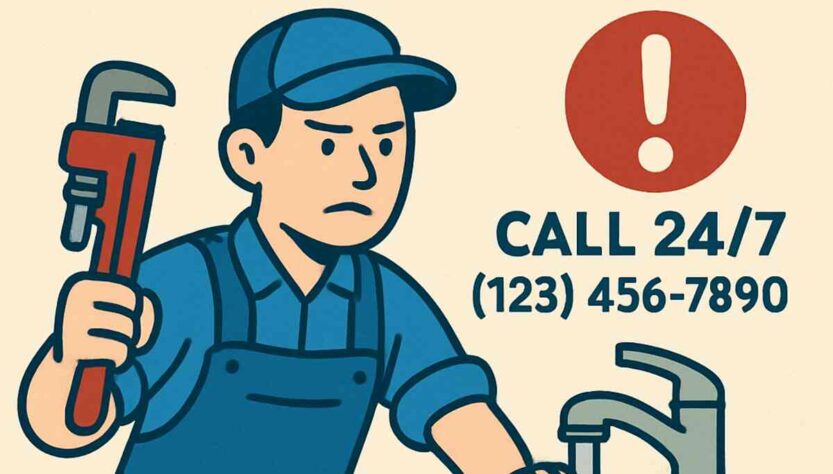Why 24/7 Plumbing Services Matter
Picture this: it’s 2 AM, and you hear the dreaded sound of water dripping — or worse, gushing. A 24/7 plumber is your lifeline in these moments, ready to tackle the issue no matter the hour. But what makes a good emergency plumber? Here are some key qualities to look for: Select the best plombier wavre.
Availability and Response Time
The whole point of an emergency plumber is their availability at odd hours. Look for services that guarantee prompt responses. A delay of even a few hours can escalate a minor leak into a major flood. In emergencies, time is of the essence, and having a plumber who can arrive quickly can save you from extensive water damage and costly repairs.
Additionally, some plumbing services offer a guaranteed response time within a specific window, such as 30 minutes or an hour. Such assurances can provide peace of mind, knowing that help is on the way. It’s also beneficial to inquire whether the company has a sufficient number of plumbers on call during peak hours to manage multiple emergencies simultaneously.
Experience and Expertise
You want a plumber who knows their stuff and can handle a variety of plumbing issues. Experience means they’ve likely seen it all, from burst pipes to faulty water heaters, and can provide quick, effective solutions. Look for companies that boast a team of seasoned professionals with a proven track record.
Moreover, experienced plumbers are more adept at diagnosing problems swiftly and accurately, reducing the time spent on repairs. They also come equipped with the necessary tools and parts to address a wide range of issues on the spot. When evaluating experience, consider plumbers who regularly engage in training and keep abreast of the latest plumbing technologies and techniques.
Reliability and Trustworthiness
Reliability goes hand-in-hand with experience when it comes to emergency plumbing services. You need to be able to trust that the plumber will arrive when they say they will and complete the job to a high standard. Trustworthy plumbers also provide honest assessments and transparent pricing.
Establishing trust is crucial, especially since emergencies often involve letting a stranger into your home. Look for companies that perform background checks on their technicians and are open about their hiring practices. Reading reviews and testimonials can also provide insight into a plumber’s reliability and customer service.
How to Find a Reliable 24/7 Plumber
Alright, so now you know what to look for, but how do you actually find these plumbing superheroes? Here’s a roadmap to guide you:
Ask for Recommendations
Start by asking friends, family, or neighbors if they have any recommendations. Personal referrals are gold when it comes to finding trustworthy services. If someone you trust had a good experience, chances are you will too. Ask specific questions about the plumber’s punctuality, professionalism, and problem-solving skills.
Word-of-mouth referrals often come with anecdotes that highlight the plumber’s ability to handle emergencies with grace and efficiency. Additionally, you can gather insights into any potential drawbacks, helping you make a more informed decision. Don’t hesitate to ask for details about any follow-up services or guarantees provided after the initial repair.
Research Online

The internet is your friend! Look up local plumbers and check out their reviews. Websites like Yelp, Google Reviews, and even social media platforms can provide insights into the experiences of previous customers. Pay attention to comments about reliability, pricing, and professionalism. Compare ratings and look for patterns in feedback to gauge overall satisfaction.
It’s also helpful to visit the company’s website to learn more about their services, areas of expertise, and any special certifications they hold. Many plumbing companies showcase customer testimonials directly on their site, offering curated but insightful perspectives. When researching, consider reaching out to the company via email or phone to ask any additional questions you might have.
Check Credentials
Once you have a list of potential plumbers, check their credentials. Are they licensed and insured? This is crucial. A licensed plumber has met specific industry standards, and insurance protects you from liability in case of accidents. Verify their licensing with local authorities or through online databases to ensure compliance.
Insurance coverage is equally important, as it safeguards both the plumber and your property. In the event of an accident or damage, insurance can cover the costs, preventing financial strain. Additionally, inquire about any warranties or guarantees offered on their work, which can provide added reassurance regarding the quality of their service.
Red Flags to Watch Out For
While hunting for the perfect plumber, be wary of these red flags:
Vague Estimates
A reputable plumber should provide a clear estimate of costs after assessing the situation. If a plumber refuses to give an estimate or provides a vague one, consider it a warning sign. Transparent pricing is essential to avoid unexpected charges and disputes.
Beware of plumbers who demand full payment upfront or quote suspiciously low prices, as these can be indicators of subpar service or hidden fees. A detailed estimate should include labor, parts, and any potential additional costs, allowing you to budget accordingly. Insist on written estimates to have a clear record of agreed terms.
Lack of Communication
Communication is key in any service. If a plumber is hard to reach or doesn’t return calls promptly, it might be best to look elsewhere. Effective communication ensures that you are informed about the status of the repair and any necessary actions on your part.
A plumber who communicates well will also take the time to explain the problem and the proposed solutions in layman’s terms. This transparency helps build trust and confidence in their expertise. Evaluate their willingness to answer questions and address concerns, which reflects their commitment to customer satisfaction.
Unclear or No Contract
A proper contract outlines the work to be done, timelines, and costs involved. Avoid plumbers who don’t offer a contract or have unclear terms. Contracts protect both parties and provide a reference point if any issues arise during or after the repair.
Ensure the contract specifies the scope of work, materials to be used, and any warranties or guarantees. Review the terms carefully before signing and don’t hesitate to ask for clarification on any points. A reputable plumber will be willing to go through the contract with you and make amendments if necessary.
What to Expect During a Plumbing Emergency
So you’ve found your go-to 24/7 plumber. What happens during an actual emergency call?
Initial Contact
When you call, the plumber will ask questions to assess the situation. Be ready to describe the problem and provide any relevant details. Accurate information helps the plumber prepare for the task ahead, ensuring they bring the right tools and parts.
Expect questions about the location of the problem, any visible symptoms, and any temporary measures you’ve taken. Clear communication at this stage can expedite the repair process and minimize damage. Keep calm and provide as much detail as possible to help the plumber make an informed assessment before arrival.
On-Site Assessment
Once the plumber arrives, they’ll evaluate the issue and explain what needs to be done. They should also provide an updated cost estimate. A thorough inspection helps identify the root cause of the problem, preventing future issues.
During the assessment, the plumber may ask additional questions or request access to specific areas of your home. Be cooperative and inquire about any concerns you have regarding the repair process. A professional plumber will take the time to address your questions and explain their findings.
The Fix
Depending on the problem, the plumber may fix the issue immediately or propose a temporary solution until a full repair can be completed. Trust in their expertise, but don’t hesitate to ask questions if you’re unsure about something. They should be able to explain the repair process and any follow-up actions required.
In some cases, parts may need to be ordered, or additional work may be scheduled for a later date. Ensure you understand the timeline and any interim measures you need to take. A reliable plumber will keep you informed throughout the process and provide clear instructions for any necessary actions on your part.
Tips for Preventing Future Plumbing Emergencies
While emergencies can’t always be predicted, there are steps you can take to minimize their occurrence:
Regular Maintenance
Schedule regular check-ups with your plumber to catch potential issues before they become emergencies. It might seem like an extra expense, but it can save you money and stress in the long run. Regular maintenance includes inspecting pipes, checking water pressure, and ensuring appliances like water heaters are in good working order.
Ask your plumber about setting up a maintenance schedule that suits your needs and budget. Preventive maintenance can identify wear and tear early, allowing for timely repairs that prevent costly breakdowns. Consider investing in service plans that offer routine inspections and priority service during emergencies.
Know the Signs
Learn to recognize the signs of potential plumbing problems, such as slow drains, unusual noises, or unexpected water bills. Early detection can prevent small issues from becoming big headaches. Familiarize yourself with common warning signs like water stains, mold growth, or water temperature fluctuations.
Educating yourself on basic plumbing functions can empower you to take swift action when problems arise. Keep an eye on your plumbing system and address any irregularities promptly to avoid compounding issues. A proactive approach can significantly reduce the likelihood of emergency situations.
Have a Plan
Keep the contact information for your chosen 24/7 plumber handy. Stick it on your fridge or save it in your phone for quick access during an emergency. Having a plan in place ensures you can act swiftly, minimizing damage and disruption.
Discuss emergency procedures with your family or household members, so everyone knows what to do if a plumbing issue occurs. Consider creating an emergency kit with basic tools, towels, and a list of key shut-off valves for quick response. Preparation can make a significant difference in managing plumbing emergencies effectively.
Final Thoughts
Choosing the right 24/7 plumber for emergencies is about preparation and knowledge. By knowing what to look for and how to vet potential services, you can ensure that you’re ready for whatever plumbing chaos life throws your way. Remember, the goal is to act quickly and efficiently, minimizing damage and restoring peace to your home.
Stay proactive, keep our tips in mind, and rest easy knowing you’re prepared for any plumbing curveballs that come your way. Happy plumbing!
